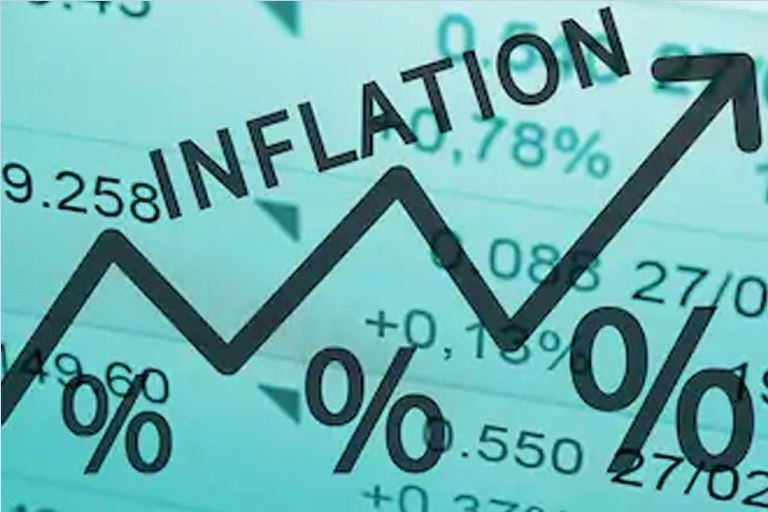Nigeria’s headline inflation rate moderated to 22.22% in June 2025, down from 22.97% recorded in May, according to the latest data from the National Bureau of Statistics (NBS).
The Bureau made this disclosure on Wednesday through its Consumer Price Index (CPI) report.
The year-on-year figure reflects a 0.75 percentage point decrease compared to May and a sharp 11.97 percentage point drop from June 2024, which posted a 34.19% inflation rate.
The decline comes on the back of a rebased CPI index, with 2024 now serving as the new base year. However, despite the annual moderation, monthly inflation increased to 1.68% in June, up from 1.53% in May—indicating continued short-term price pressures.
According to the NBS report, “The Consumer Price Index rose to 123.4 in June 2025, reflecting a 2.0-point increase from the preceding month (121.4). In June 2025, the Headline inflation rate eased to 22.22 per cent relative to the May 2025 headline inflation rate of 22.97 per cent. Looking at the movement, the June 2025 Headline inflation rate showed a decrease of 0.75 per cent compared to the May 2025 Headline inflation rate.”
The NBS added, “On a year-on-year basis, the Headline inflation rate was 11.97 per cent lower than the rate recorded in June 2024 (34.19 per cent). This shows that the Headline inflation rate (year-on-year basis) decreased in June 2025 compared to the same month in the preceding year (i.e., June 2024), though with a different base year, November 2009 = 100.”
Food inflation dropped significantly to 21.97% in June from 40.87% in the same month last year. This sharp decline is largely due to the rebasing effect.
However, month-on-month, food inflation surged to 3.25% in June from 2.19% in May, driven by price hikes in key staples such as tomatoes, pepper, dried green peas, crayfish, shrimps, meat, plantain flour, and ground pepper.
The 12-month average food inflation rate stood at 28.28%, lower than the 35.3% recorded during the corresponding period of 2024.
Core inflation, which excludes volatile items such as food and energy, dropped year-on-year to 22.76% from 27.4% in June 2024. However, it climbed month-on-month to 2.46% in June from 1.10% in May, signaling mounting pressure in non-food sectors. The 12-month average core inflation was 24.14%, slightly up from 24.01% in the previous year.
Urban inflation dropped year-on-year to 22.72% from 36.55%, while month-on-month inflation increased to 2.11% from 1.40%. The average 12-month urban inflation rate also fell to 28.16%.
Rural inflation followed a similar path, easing year-on-year to 20.85% from 32.09%, with a slower monthly rate of 0.63% in June versus 1.83% in May. The average annual rural inflation stood at 24.65%.
Borno led with the highest year-on-year all-items inflation at 31.63%, followed by Abuja (26.79%) and Benue (25.91%). Zamfara recorded the lowest inflation at 9.90%, followed by Yobe (13.51%) and Sokoto (15.78%).
Month-on-month, the sharpest inflationary spikes occurred in Ekiti (5.39%), Delta (5.15%), and Lagos (5.13%). Meanwhile, Zamfara (-6.89%), Niger (-5.35%), and Plateau (-4.01%) saw notable declines.
Food inflation was most severe in Borno (47.40%), Ebonyi (30.62%), and Bayelsa (28.64%). Conversely, Katsina (6.21%), Adamawa (10.90%), and Sokoto (15.25%) posted the slowest food inflation rates.
On a monthly basis, Enugu (11.90%), Kwara (9.97%), and Rivers (9.88%) experienced the fastest food inflation increases, while Borno (-7.63%), Sokoto (-6.43%), and Bayelsa (-6.34%) saw declines.
The NBS identified key contributors to headline inflation as food and non-alcoholic beverages, restaurants and accommodation services, transport, housing, electricity, gas and other fuels, education, health, and clothing and footwear.
While the year-on-year easing suggests macroeconomic stability is improving, the month-on-month figures indicate that Nigerian households are still grappling with rising costs and financial strain.











